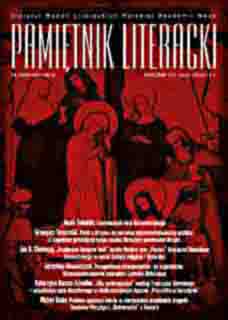Pozagrobowa przepowiednia i jej wypełnienie. Wczesnorenesansowe exemplum Ludwika Alidozjusza
Afterlife Prophecy and Its Fulfilment. The Early-Renaissance Exemplum of Louis Alidosius
Author(s): Jarosław NowaszczukSubject(s): Literary Texts
Published by: Instytut Badań Literackich Polskiej Akademii Nauk
Keywords: Louis Alidosius' exemplum; prophecy
Summary/Abstract: The intriguing story of the repeated appearance of the ghost of a dead father is an introduction to the turbulent life of a particular historical figure, i.e. Louis Alidosius. The story also helps to understand, to some degree, the thinking and reality of the period long time ago. Moreover, it facilitates the understanding of the features of exemplum. It turns out that the form is still valid and, based on the outlooks on the world deeply rooted in the European mentality, is still comprehensible. The main character of the story, the duke of the city-state of Imola, is depicted by historians as a comprehensively educated and noble person. The ideas fostered by Louis obviously characterise a new period in history, namely the Renaissance. His only fault was rationalism, which prevented him from believing that an encounter with the dead was possible. Leaving aside a contemporary assessment of that phenomenon, it is worth noting that, according to all sources, the phenomenon was the result of an extremely unfortunate event that once, i.e. the loss of his rule over his home town. The prophecy told by Beltrand determined his son's whole life, surrendering it to the power of ill fate. Sometimes the Renaissance belief in supernatural intervention is regarded as the legacy of the Middle Ages. It cannot, however, be ruled out that fatalism appeared in the minds of humanists as a natural consequence of their desire to re-experience the period of antiquity. Alongside writing, literature and attempts to get an insight into the reality of antiquity, humanists somehow unintentionally began to think in a way typical of the long-gone period.
Journal: Pamiętnik Literacki. Czasopismo kwartalne poświęcone historii i krytyce literatury polskiej
- Issue Year: 2015
- Issue No: 1
- Page Range: 69-82
- Page Count: 14
- Language: Polish

